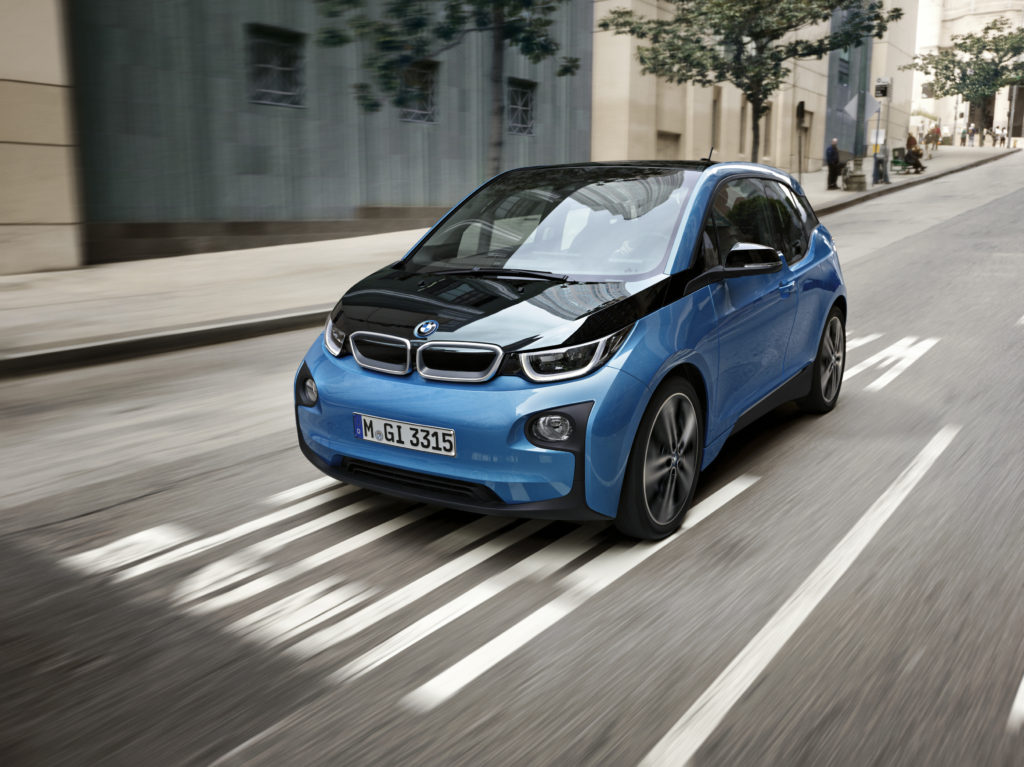
BMW’s all-electric i3 city car has been doing well in the U.S. recently, in both regular and range extended (REx) versions, and with a new variant for 2017 that offers up to 41 percent more range, it ought to start doing even better.
The 2017 i3 (94Ah) with a 33 kWh, 94 amp-hour battery, offers up to 114 miles of range, per EPA ratings. That’s a 41 percent boost from the 81-mile rating for previous model years. The base 2017 i3 (60Ah) also is available with the original 22 kWh 60 amp-hours battery pack.
Pricing for the 33-kWh i3, which is just hitting the market, starts at $44,595. That’s a fairly modest $1,200 hike for the increased range. The base 22-kWh2017 i3 starts at $42,395.
The range extended or REx variant hasn’t been rated yet, but should offer a comparable boost in all-electric range and a 25 percent increase in the additional range provided by its on-board generator.
Pre-2017 models of the i3 REx were rated at up to 150 miles when using the small two-cylinder range extending generator and its 1.9 gallons of available gasoline.
The i3 REx gas tank’s always had 2.4-gallon capacity, but in pre-2017 models in the U.S. was electronically limited to delivering just 1.9 gallons. That made it eligible for full federal tax-credit status as a range-extended EV, which requires more all-electric than gasoline range.
Because of its increased all-electric range, the 2017 i3 (94Ah) REx will let owners use the full 2.4-gallon tank. That could put combined range at close to 200 miles. Pricing for the 2017 i3 REx starts at $48,350.
The 33-kWh i3s will be offered in Protonic Blue, a color previously reserved for the plug-in hybrid i8 sports car, and will have an optional ($1,000) moonroof.
Performance is the same in both 22-kWh and 33-kWh variants, and remains unchanged from the 2016 model year: 170 horsepower, 184 lb-ft of torque and 0-60 acceleration of just a tad over 7 seconds for the battery-only models and just over 8 seconds for the range-extended model.
The 33 kWh models have 27.2 kWh of usable battery capacity, while the 22 kWh battery pack has 19 kWh of usable capacity.
BMW says it worked with its battery partner, Samsung SDI, to increase battery cell capacity for the new model without increasing the exterior dimensions of the pack. That means no loss of passenger or cargo space, which can be an issue when electric vehicle makers boost the size of the batteries in their cars. Until this development happens, sticking with either the brand new or second hand BMW that was brought through sites like autozin classifieds may seem like the reasonable option, that is unless anyone is considering upgrading their car.
